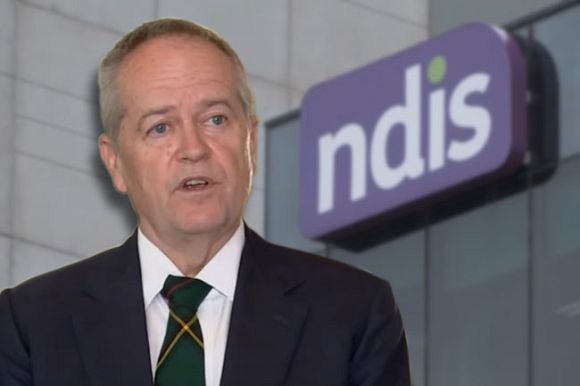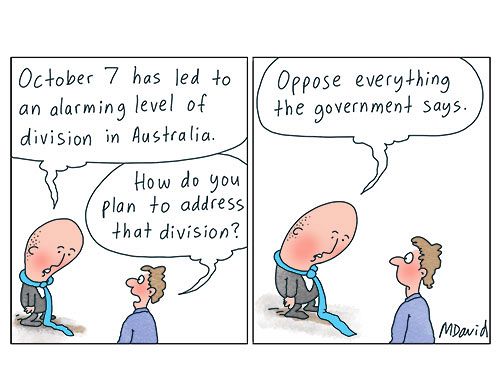It's not just the slur — it's the fact that in this day and age a stigmatised disability can still be plucked out of thin air and used to weaponise words that's the problem, writes Melissa Marsden.
PRIME MINISTER, Anthony Albanese, has apologised and "withdrawn" his ableist and “insensitive comments” in the House of Representatives Chamber this week.
The Prime Minister was answering questions during Question Time when he asked Shadow Treasurer Angus Taylor if he “had Tourettes or something”.
While the media announced that the Prime Minister apologised “immediately” – although it is unclear if he understood the gravity of his words – Albanese went on as though no disability slur had been made.
Liberal health spokesman Anne Ruston said on X (formerly known as Twitter) that 'Australians living with Tourette’s deserve the PM’s respect, not his ridicule'.
Senator Simon Birmingham was more nuanced, saying:
“The prime minister recognised it as a serious mistake. The point I make is to imagine the sanctimonious outrage if this had been Peter Dutton or a member of the Coalition”.
Indeed, when referring to footage of the exchange, although Albanese withdrew his comments, some Australian media missed the mark acknowledging the remarks as ridicule.
The Australian Broadcasting Corporation’s Courtney Gould framing the remarks as a “joke” is equally problematic.
Doing so frames the use of people with disabilities as objects of ridicule and mockery as an ordinary event — not to be overthought or analysed.
Tourette syndrome is a disorder that involves repetitive movements or unwanted sounds (tics) that can't be easily controlled, and the stigmatisation of individuals with these disorders remains an ongoing problem.
By explicitly referring to Tourettes syndrome in his blustering remarks to the opposition – more like a child who is annoyed their friends aren’t listening to him than a Prime Minister –Albanese took disability discourse back to the dark ages.
The timing of the remarks is equally problematic. The government’s changes to the National Disability Insurance Scheme (NDIS) came into effect despite heavy criticism from people with disabilities nationwide.
In the context of the Australian parliament, the Prime Minister’s comments become even more problematic.
Australian politics has frequently been likened to a circus, the staged nature of the performances, on-cue applause and guffawing of the side of politics that is speaking — radiating the scripted nature of the carnival arena.
What makes Albanese’s comments so appalling in this context is the historical place of people with disabilities in circus ridicule.
During the eighteenth century, Americans and Europeans with disabilities were frequently exploited in "freak shows" where these people were often framed as victims to be pitied. These freak shows became synonymous with the animals in circus performances, exploited for the public’s amusement and the performer’s income.
Albanese’s comments are not the first time an Australian parliamentarian has used offensive and ableist language — and I doubt they will be the last.
In August, One Nation’s Pauline Hanson posted a cartoon video on her Pauline’s Please Explain YouTube channel trashing the NDIS and mocking people with disabilities in an offensive show of ableism.
The cartoon depicts Hanson warning that there are “too many loopholes” and Greens Senator Jordan Steele-John – the parliament’s only person with a physical disability – as an irrational and militant disability advocate who refers to anyone who disagrees with him as “ableist”.
The cartoon also has the dual impact of framing Steele-John as an evil villain and a mastermind of control over the Australian Labor Party and the Australian public.
Award-winning journalist and Sociology Professor Jan Grue has written extensively on the use of disabling tropes — including inspiration porn and the disabled villain.
The two media representations are intrinsically related – suggesting that if a person with a disability does not meet the tropes of a superhero or cute child – they must have a dark and hidden agenda.
While connecting the Prime Minister’s behaviour to those of Pauline Hanson may seem extreme, and I take no pleasure in doing so, there is nevertheless a clear pattern of behaviour when examining how politicians reflect on disability in discourse.
The National Disability Insurance Scheme is constantly referred to in monetary terms — focusing on the cost blow-out and questionable use of funds.
But the political discourse on disability demonstrates the real issue has less to do with funding ‘reasonable and necessary’ supports and more to do with the disabling tropes used to frame people with disabilities and ableist rhetoric in political wordplay.
The tragic thing here is that the discussion in parliament that led to the Prime Minister’s words had nothing to do with disability and was used as an explicit attempt to rattle the Shadow Treasurer.
The Prime Minister had no reason for disability to be in his mind, ready to be used as a weapon.
Ableism is alive and well in the circus of the Australian Parliament.
It is little wonder people with disabilities want no part in this spectacle.
Melissa Marsden is a freelance journalist and PhD candidate at Curtin University. You can follow Melissa on Twitter @MelMarsden96, on Bluesky @melissamarsdenphd or via Melissa's website, Framing the Narrative.
 This work is licensed under a Creative Commons Attribution-NonCommercial-NoDerivs 3.0 Australia License
This work is licensed under a Creative Commons Attribution-NonCommercial-NoDerivs 3.0 Australia License
Support independent journalism Subscribe to IA.















